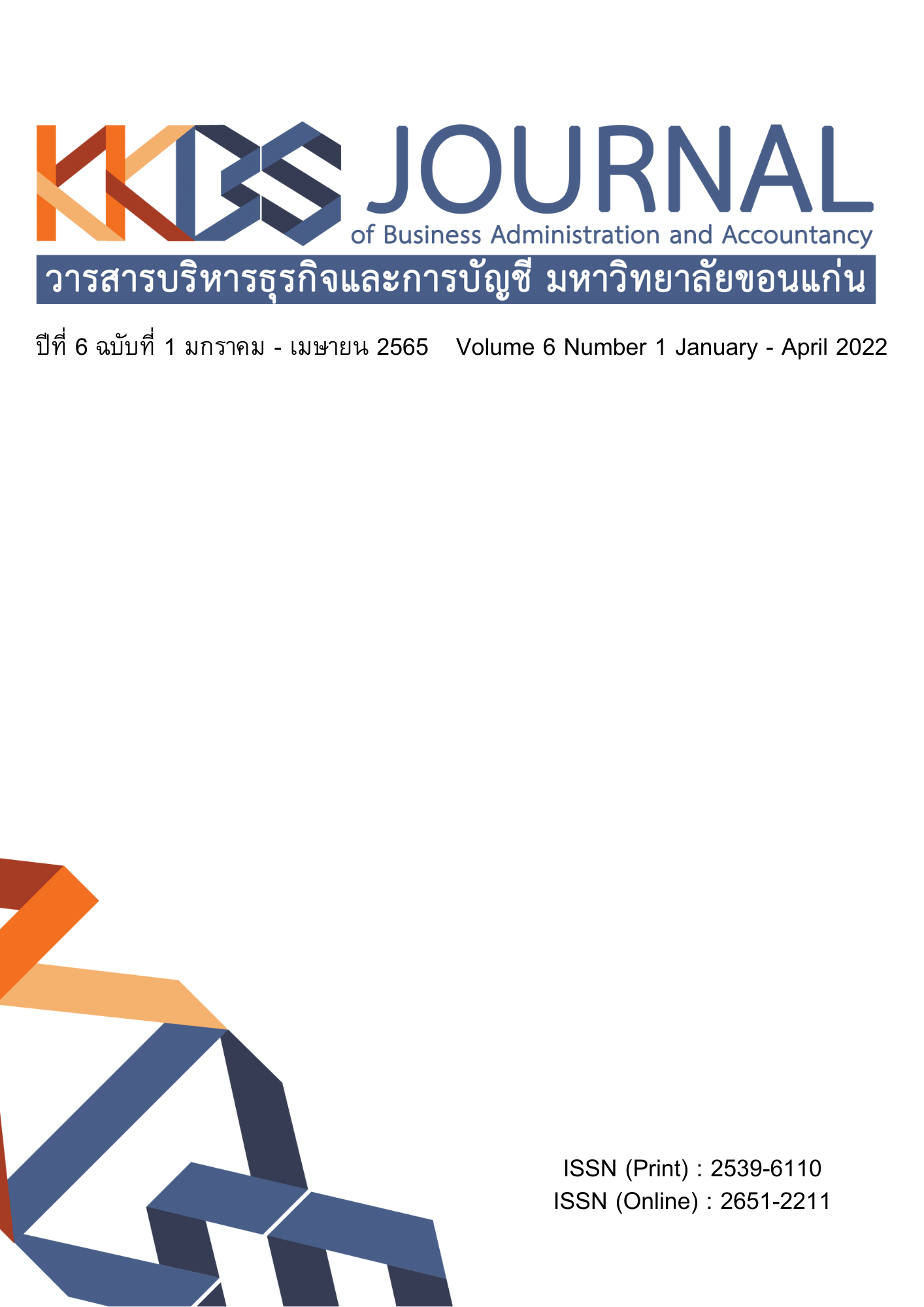The Influence in Acceptance and Use E-Wallet System on the Behavior of Using Financial Services
Main Article Content
Abstract
The objective of this research was to study both factor of acceptance and use of technology and the influence of the factor that affect to use behavior through behavioral intention and attitude and direct affect use behavior. This research is quantitative research that applied the unified theory of acceptance and use of technology (UTAUT) to be conceptual framework. The 400 samples were e-wallet’s customers that live in Bangkok and vicinity and used online questionnaire to collect data. The data were analyzed by statistics and applied multiple regression analysis.
The results showed that the factors of acceptance and use of technology includes expectations of performance and effort social influence facilitation conditions price value Habit and perceived security the attitude factor towards e-wallet that is influenced by expectations both performance and effort. Social influence and facilitation conditions. It influences the intention of using an e-wallet as intent and attitudes become more influential, including facilitation condition and habit. Causing the behavior of using the e-wallet system of the customer groups Influences in the same direction of relationships which are consistent with applied concepts. This research would benefit provider networks for improvement and development to have effective and security work and provide comprehensive financial services results of
e-wallet’s customers.
Article Details

This work is licensed under a Creative Commons Attribution-NonCommercial-NoDerivatives 4.0 International License.
The articles published in the journals are the authors' opinions, not the opinion of the editorial team or administrative staff. The articles published is copyright of the Journal of Business Administration and Accounting, Khon Kaen University.
References
Almaiah, M.A. et al. (2020). Mobile government adoption model based on combining GAM and UTAUT to explain factors according to adoption of mobile government services. International Journal of Interactive Mobile Technologies, 14(3), 199-225.
Dwivedi, Y.K. et al. (2019). Re-examining the unified theory of acceptance and use of technology (UTAUT): Towards a revised theoretical model. Information Systems Frontiers, 21(3), 719–734.
Fadzil, F.H. (2018). A study on factors affecting the behavioral intention to use mobile apps in Malaysia. SSRN Electronic Journal. DOI: http://dx.doi.org/10.2139/ssrn.3090753
Gupta, K. & Arora, N. (2020). Investigating consumer intention to accept mobile payment systems through unified theory of acceptance model: An Indian perspective. South Asian Journal of Business Studies, 9(1), 88-114.
Indrawati & Najiya, R. (2015). Predicting acceptance and use behavior of consumers toward IndiHome services by using extended UTAUT model (A case study in Bandung). International Journal of Science and Research, 6(5), 1860-1865.
Jarukit Marketeer. (2019). 5 things to check before applying an e-Wallet. Retrieved May 5, 2020, from https://marketeeronline.co/archives/137801. (In Thai)
ManagerOnline. (2019). True Money: The most use statistics with students. Retrieved May 1, 2020, from https://mgronline.com/cyberbiz/detail/9620000050036 (In Thai)
Mensah, I.K. et al. (2019). Determinants of the continued intention of college students in China to use DiDi Mobile car-sharing services. SAGE Open, 9(4), 1-16.
Merhi, M., Hone, K. & Tarhini, A. (2019). A cross-cultural study of the intention to use mobile banking between Lebanese and British consumers: Extending UTAUT2 with security, privacy and trust. Technology in Society, 59, 1-12.
Nuttachit. (2019). e-Wallet 2020 war, more use win. Retrieved May 4, 2020, from https://marketeeronline.co/archives/122047. (In Thai)
Papa, F. et al. (2010). Factors affecting the usage of payment services through digital television in Italy. 10 Proceedings of the 8th European Conference on Interactive TV and Video. pp. 209-216. DOI: https://doi.org/10.1145/1809777.1809820
Park, J.K., Yang, S.J. & Lehto, X. (2007). Adoption of mobile technologies for Chinese consumers. Journal of Electronic Commerce Research, 8(3), 196-206.
Rachna & Singh, P. (2013). Issues and challenges of electronic payment systems. International Journal for Research in Management and Pharmacy, 2(9), 25-30.
Ruamrak, W. (2017). Mobile wallet in a digital cash society. Retrieved May 1, 2020, from https://www.gsbresearch.or.th/gsb/published-works/economic-and-business-research/1894/ (In Thai)
Saiphatana, U. & Piyapimonsit, C. (2004). Collinearity. Parichart Journal, 17(1), 55-62. (In Thai)
Sripana, M. (2019). The cashless society situation in Thailand. Bangkok: The Secretariat of the Senate. (In Thai)
Torres, J.A.S. et al. (2018). E-banking in Colombia: factors favouring its acceptance, online trust and government support. International Journal of Bank Marketing, 36(1), 170-183.
Venkatesh, V. et al. (2003). User acceptance of information technology: Toward a unified view. MIS Quarterly, 27(3), 425-478.
Venkatesh, V., JThong, Y.L. & Xu, X. (2012). Consumer acceptance and use of information technology: Extending the unified theory of acceptance and use of technology. MIS Quarterly, 36(1), 157-178.
Wongwilai, S., Ratana-O-Larn, T. & Kiddee, K. (2015). Factor Analysis of Knowledge Management Process of Autonomy University. Veridian E-Journal, Slipakorn University, 8(3), 881-829. (In Thai)
Yanfi, Y., Kurniawan, Y. & Arifin, Y. (2017). Factors affecting the behavioral intention of using Sedayuone mobile application. ComTech Computer Mathematics and Engineering Applications, 8(3), 137-143.


